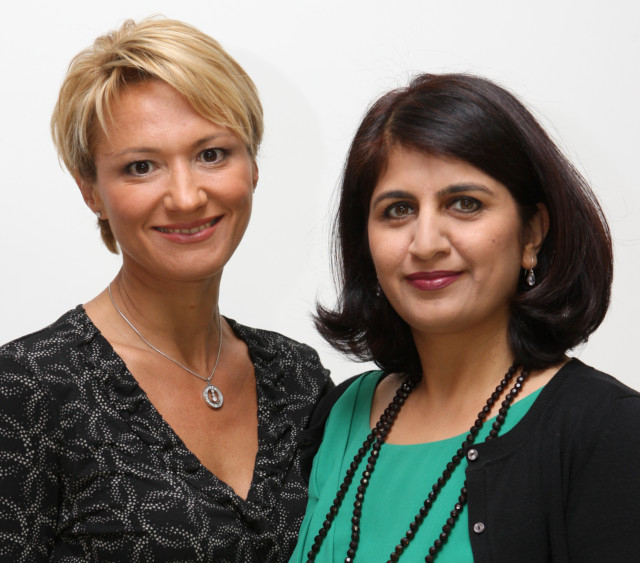
Dubai: Before explaining the benefits of debating and why we wish to promote it, I think we should first clarify what debating actually is….
A Debate is an organized discussion whereby an issue or topic is considered from different viewpoints. It involves two sides, one which supports the motion and the other which opposes it.
Why debating?
Debating improves oral communication and listening skills
It promotes critical thinking (abstract & analytical thinking, clarity, ability to discern between fact and opinion, identifying bias, rigorous questioning and most importantly developing a point of view).
Enhances reading and comprehension skills.
Builds confidence and self-esteem.
Encourages teamwork and cooperation.
Promotes presentation skills (i.e. positive body language, empathetic engagement with audience, persuasive communication and public speaking).
The benefits of debating are multifold and work towards building a strong foundation for successful leadership.
As parents of young children, we felt the need for many more inter-school competitions with an academic bent. The express objective is to bring together children, who have the mental ability and talent, which they will showcase in competitive environments. As part of our continuing educational endeavour, we have conceptualised “War Of Words” (WOW) and numerous other competitions, with the aim of bringing together the “best and brightest” of Dubai’s primary school children, on a regular basis, to debate & compete with each other & win recognition across the school community in UAE.
•Top 5 Benefits of “learning to debate:
Debating is a science (and an art) which enables students to imbibe and learn the following:
-Methodology to research and find relevant information.
-Be thorough and accurate.
-Develop strong analytical abilities to distinguish between the vital and the unimportant, ownership and accountability for justifying one’s statements, sound reasoning and judgement to enable fact based decision making.
-Communicate ideas effectively to win “hearts & minds” of people.
-Experience a real environment of public discussions, disagreements and criticism which builds confidence to speak and debate effectively in public forums, and be decisive, yet cooperative.
In summary:
The fundamental premise of debating is to convince, not combat, persuade not pressurise and most importantly, leverage one’s confidence, knowledge, subject matter expertise and judgement to positively influence people and gain their acceptance for your viewpoint.
Top 5 challenges a debater could face:
Nerves. Underconfidence and nervousness can undermine knowledge and content.
Temptation to shoot the messenger. To criticise the individual speaker, rather than focusing on the subject of the debate.
How to think on your feet. Ability to react spontaneously to unanticipated messages and arguments confidently and maturely..
Learn to hear, not listen. Need to comprehend - and analyse - the speaker’s argument carefully in order to challenge them in a succint manner.
Keep to time limit. Important to respect time and the audience.
Top 5 things debaters should remember:
Have confidence. A debater should look confident and assertive, and always display positive and empathetic body language.
Possess subject matter expertise. Know your subject and be prepared to speak convincingly and persuade the audience, competitors and judges on your viewpoint.
Display logic and reasoning. Be concise, demonstrate logical reasoning and validate argument with data, facts and evidence.
Develop an emotional connect. Speak with passion and conviction and develop an emotional connect with the judges, audience and peers.
Communication style and delivery. Speak slowly, clearly and logically with every word being “thought through” (thinking before speaking).
Top 5 things the debate coaches need to address:
Knowledge & preparedness. Ensuring that the students are well prepared and well versed in the subject matter of the debate, specifically proposition, arguments and rebuttal handling.
Teamwork. Impressing upon the students the benefits of teamwork specifically unity, cohesion, consistency and combined ability to WIN.
Clear communication of debate evaluation metrics. Any debate comprises three distinct areas for evaluation.Namely, Matter (what is presented ), Method (thought process and structure of presentation), and Manner (how the argument is presented).
Effective time management. Need to reiterate the importance of time management, key to a good debate.
Positive body language. Critical to debating success is a pleasant, yet convincing external demeanour which enhances the value of the debate beyond content and displaying EQ (emotional quotient) in addition to IQ.
How to calm your nerves:
Beforehand:
Know your subject: be prepared. It’s easier to speak about something if you know it well and you’ll feel less nervous on the day.
Practice, practice, practice
Visualise yourself giving your speech - imagine yourself speaking really well and visualise the audience clapping.
On the day:
Take a deep breath, stand upright, smile at your audience and make eye contact.
Stand firmly on both your legs to prevent knocking knees and wobbly feet.
If you have shaky hands, put your notes on the lectern front of you and hold the side of the lectern instead.
If your voice shakes when you start talking, speak in a louder voice (it stops the shakes) but DON’T SHOUT.
Don’t apologise if you make a mistake or for being nervous – the audience probably haven’t noticed.











